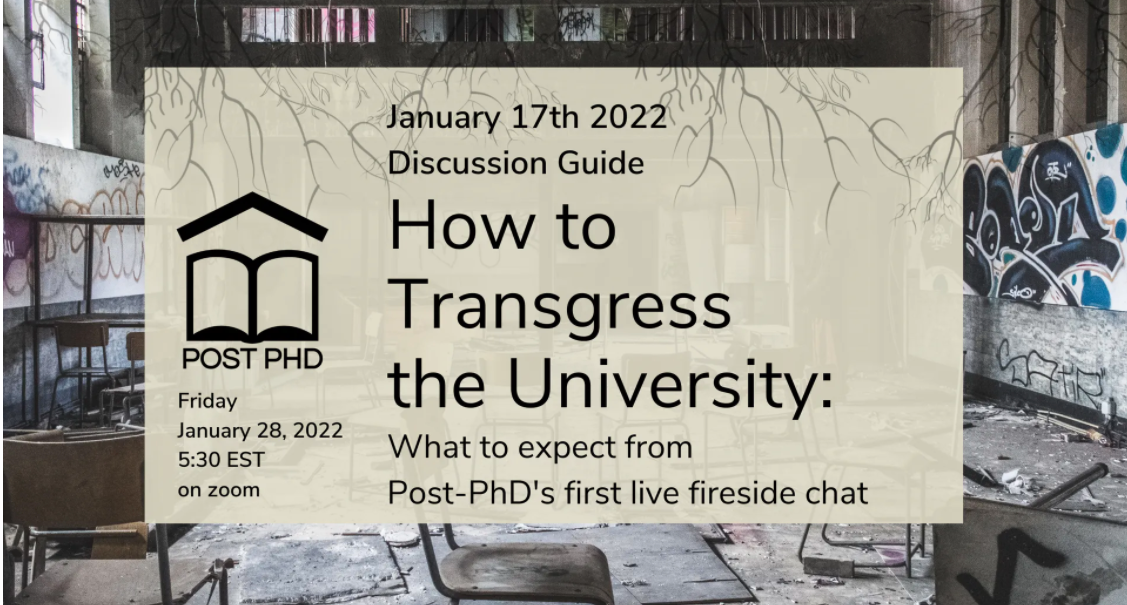On Decolonizing My Classroom & Leaving Academia to Do It
On Decolonizing My Classroom
(and Leaving Academia to Do it)
There are so many forms of knowledge, and no single one is more important than another. The weight of the truth of this statement would take me time to realize (and embody).
In this post: What is culturally responsive pedagogy? How do you decolonize the classroom? On the importance of refined critical thinking skills.
Next week: I review former academic turned novelist Amy Gentry's latest thriller "Bad Habits" and its reminder of the crucial role of imagination.
Last week: I recently asked my Black friend from grad school what the most enraging thing a white professor told her was. What she told me was far worse than I imagined.
My dissertation prepared me for a decolonizer mindset, where the hegemony of the West could be temporarily suspended from its place as the only mode of knowing, the only valid proof of intelligence. However, it wasn’t until I began teaching high school that I came to realize the enormous potential of embracing different forms of both knowledge and intelligence. This awakening provided the first step in what would be a tumultuous yet transformative journey to who I am today. And, of course, bell hooks would provide the context for my vaguely formed ideals of what it meant to decolonize teaching.
Bell hooks notes in her essay “A Revolution of Values,” in Teaching to Transgress, that “If we examine critically the traditional role of the university in the pursuit of truth and the sharing of knowledge and information, it is painfully clear that biases that uphold and maintain white supremacy, imperialism, sexism, and racism have distorted education so that it is no longer about the practice of freedom.” My last post, “Racist Knowledge(s)” demonstrates a clear example of how this shows up in academia in terms of how minority scholars are brutally and immediately invalidated, but today I’d like to focus on the content of what we teach.
As always, hooks provides a remedy for what she so astutely describes in the above quote. She says, “[t]he call for a recognition of cultural diversity, a rethinking of ways of knowing, a deconstruction of old epistemologies, and the concomitant demand that there be a transformation in our classrooms, in how we teach and what we teach, has been a necessary revolution-- one that seeks to restore life to a corrupt and dying academy” (29). The importance of both “how” and the “what” of teaching could not be underscored more than now, as we grapple with the reality that a collection of unhinged Republicans literally stormed the capitol.
Perhaps if our public education systems were truly decolonized, which is to say, the importance of understanding that there are many ways to approach knowing, we might have had a populace with more refined critical thinking skills. These “soft” skills perhaps could have enabled 40% of the country to understand and know how to pick apart bullshit from reality when it comes to election “fraud.” Of course, we do not have that. Instead we have rote memorization, endless pre-made worksheets, and standardized tests which necessarily abandon the importance of nuance and thinking critically (aka thinking creatively) are a hindrance to scoring well.
But that doesn’t mean we can’t, at least for a moment in the suspended reality of the classroom space, imagine a different way of engaging students across all levels of education. It was in the high school context that my engagement with bell hooks’ pedagogy really came alive.
At the time, the majority of my students were Asian-American or Latinx, so we explored issues such as cultural and ethnic stereotypes through that lens. I asked my students to write a paper analyzing the way in which Asian-Americans were represented in the TV show Fresh off the Boat, a show that many of my students loved. Their homework was to watch an episode, and in class the next day, I projected stills and mini-clips from the episode as I modeled how one could analyze something as mundane as a tv show. The reception I got cannot be understated. I had students lining up to talk to me after school about their paper topics, stopping me in the hallways to proudly declare what they wanted to say. When I finally was able to read their work, it was leaps and bounds ahead of the first classic art history comparison paper I had assigned.
I fell in love with energizing my students with that electric spark of self-recognition, which always made teaching the more difficult or tedious aspects of academics much easier because they were learning those rules for the express purpose of expressing themselves. I experienced just how transcendent teaching could be when, as hooks phrases it, the classroom becomes a “radical space of possibility.”
Ultimately, teaching high school is also why I am grateful for my expulsion, even how it all went down, because I never belonged there. I was always already too much: loud lesbian writing exclusively about how brown and Black women made the best art. Academia was never going to be a place where I could thrive. While I would only fully understand how academic elitism only limits your own intellectual growth when I was so forcefully expelled from academia, the seed was planted in the high school classroom.








In this post: A reflection on the UCU strikes, past and upcoming content, and what the f*ck we are supposed to do with all this mess, including a list of what I'm reading.